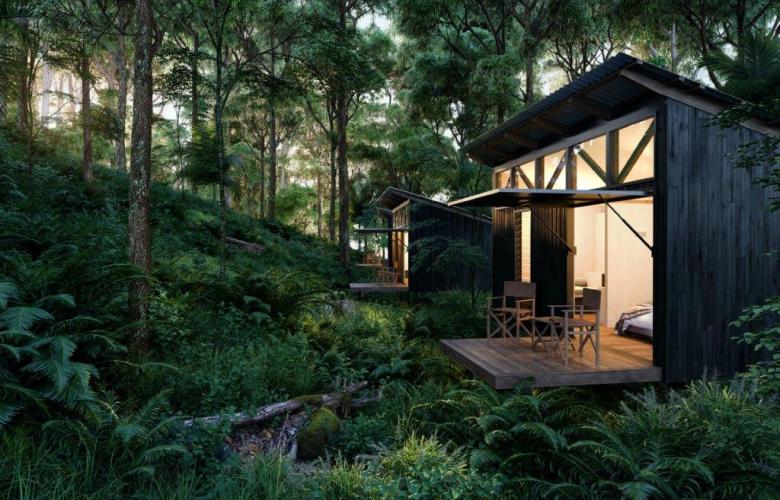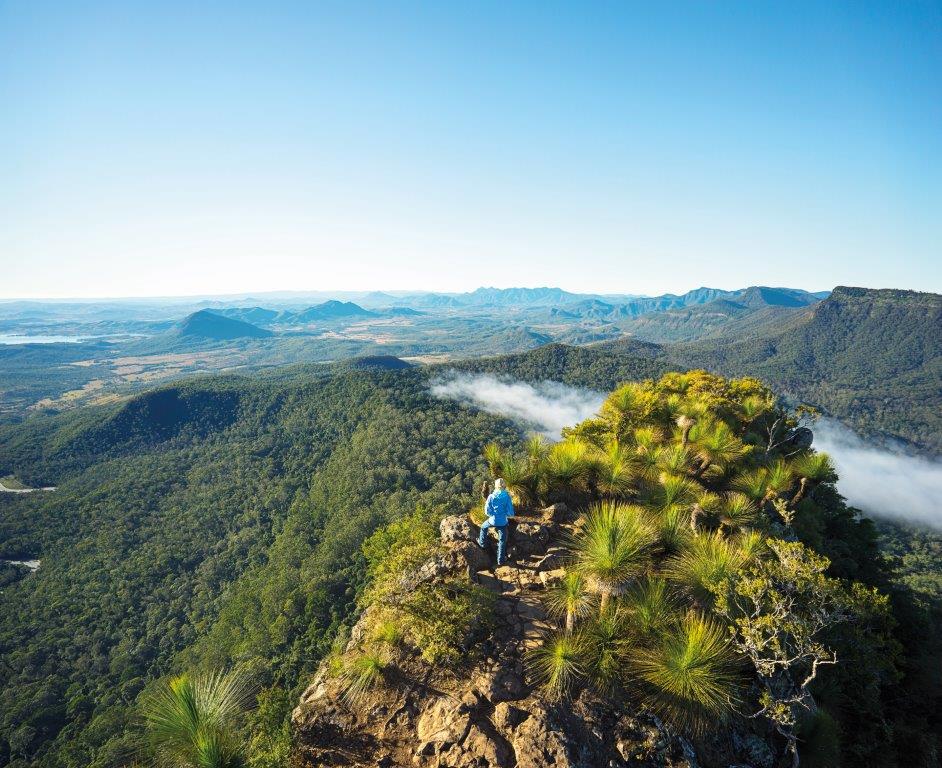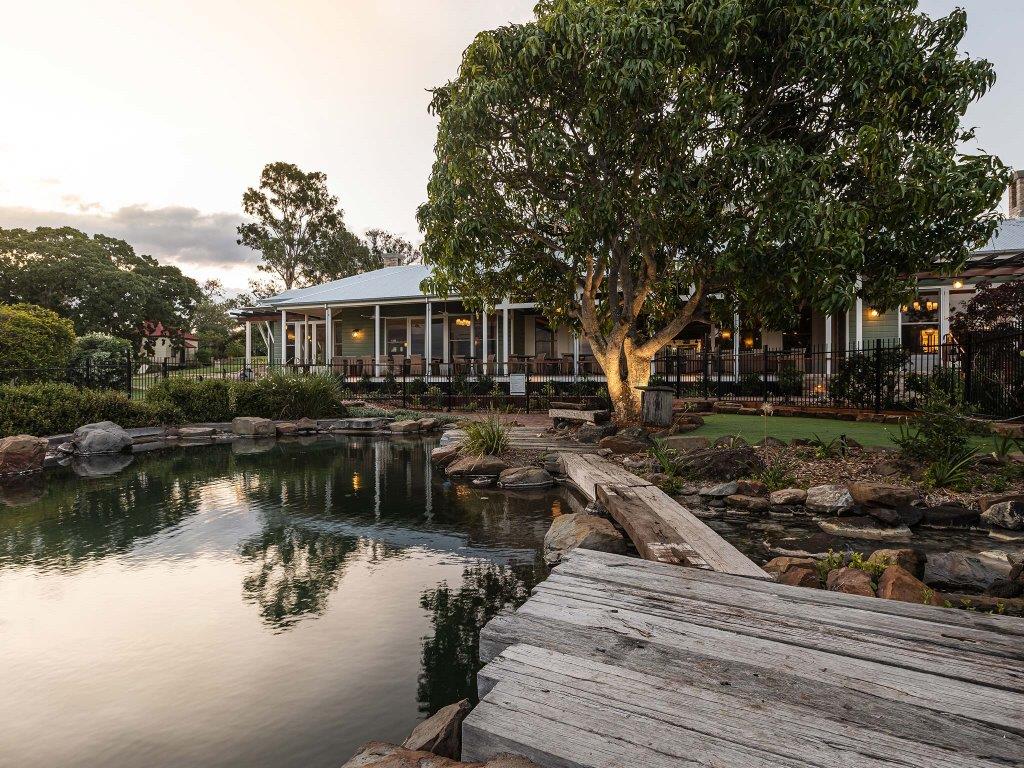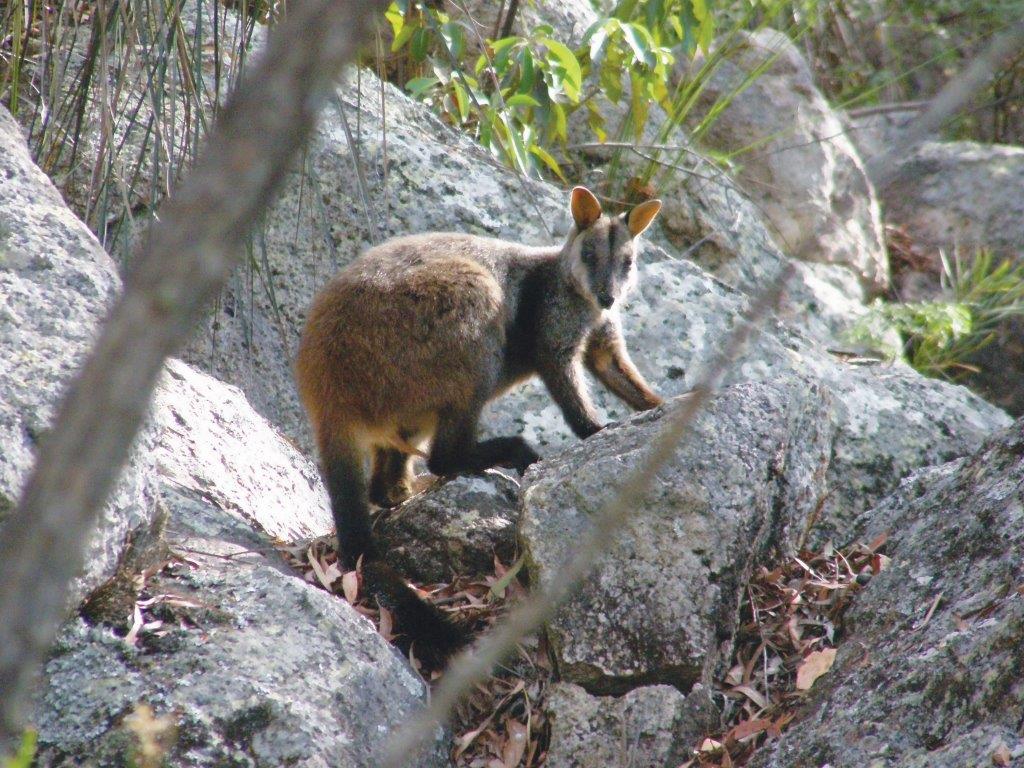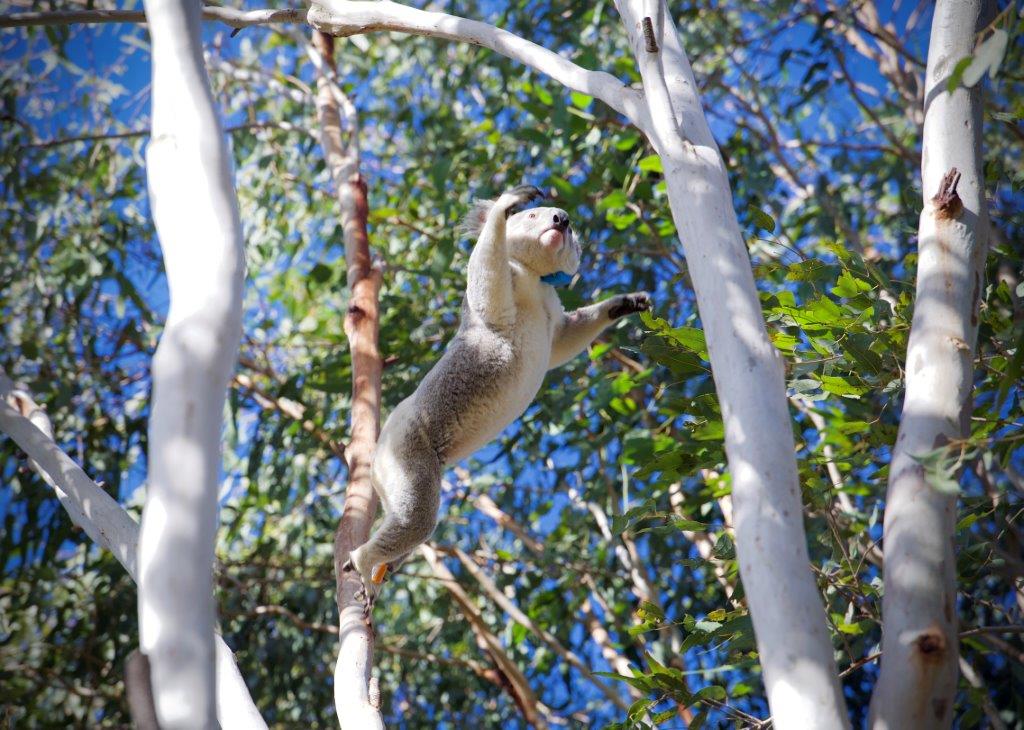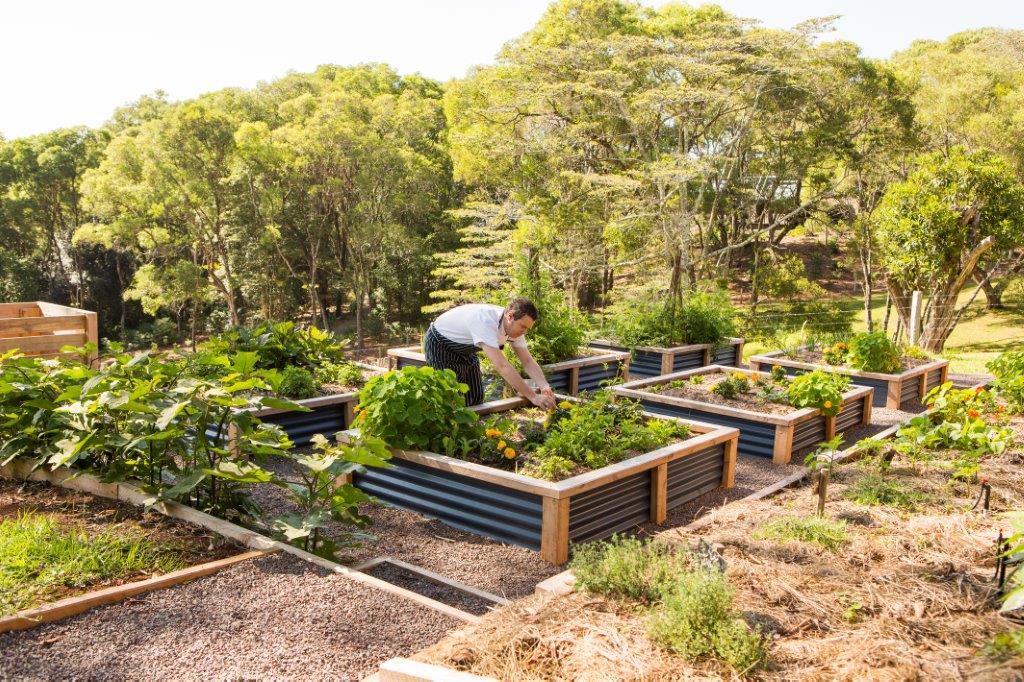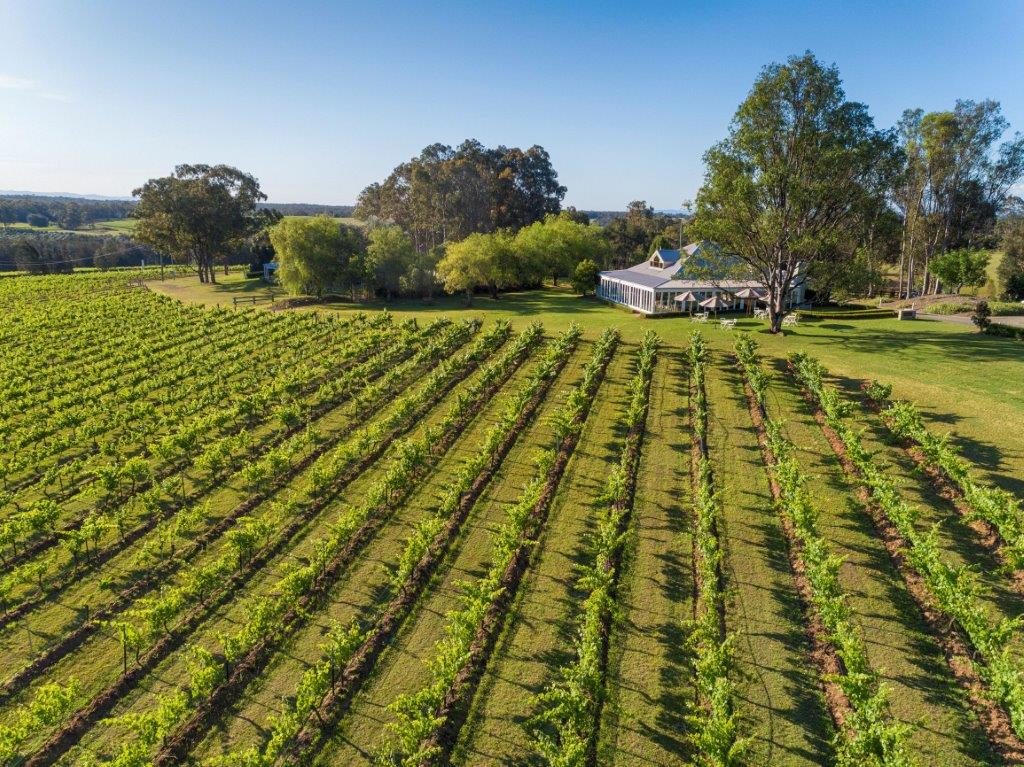Spicers Luxury is green not gold
Contact
Spicers Luxury is green not gold
Spicers Retreats and the Turner Family Foundation have released their joint Environmental Sustainability Master Plan, with ambitious goals in place to radically reduce waste, energy emissions and water use over the next decade.
Spicers Retreats and the Turner Family Foundation have released their joint Environmental Sustainability Master Plan, with ambitious goals in place to radically reduce waste, energy emissions and water use over the next decade. The plan focuses on these three core pillars of sustainability, while defining ten specific goals the company will be taking over the coming years to reduce their environmental footprint.
Since greeting their first guest in 2002, Spicers Retreats have made operating in harmony with nature central to their brand of luxury, set among glorious country estates and leafy inner-city oases.
Today, Spicers Retreats has nine retreats and eight restaurants across Queensland and New South Wales, with a further five properties in their eco-tourism venture, Spicers Scenic Rim Trail.
Released on the eve of 2021 World Environment Day, the Environmental Sustainability Master Plan summarizes the achievements of Spicers Retreats to date and the direct actions being taken to achieve their specific environment goals. The hotel group’s largest single-site solar array will go live at Spicers Hidden Vale on 2 June, with 100 kilowatts of solar energy powering over one third of the retreat’s energy consumption. Spicers Peak Lodge has just completed a comprehensive energy reduction upgrade and retrofit, as well as its own new solar array being installed this month. And last year, in 2020, Spicers Retreats announced, in conjunction with the Queensland Government, a $2m renewable energy project to replace diesel power generators, at five off grid Scenic Rim Trail properties, with renewable hydrogen storage by the end of June 2022, an energy source that creates only water vapor during its production and use.
“Protecting and enhancing the environment, particularly in South East Queensland where we grew up, has always been a passion of ours,” remarked Jude Turner, Spicers Retreats founder and joint head of the Turner Family Foundation, an organisation dedicated to preserving Australian land and wildlife.
“We hope our projects will not only help to preserve our environment for future generations but also inspire other individuals and businesses to do the same.”
SPICERS ENVIRONMENTAL GOALS
- 100% zero net emissions from energy by 2030
- Reduce water usage by 25% by 2025
- 100% eradication of single-use plastics and net waste to landfill by 2025
BACK TO NATURE
To date, Spicers Retreats and the Turner Family Foundation have made a significant investment towards achieving their joint goals to reduce waste, promote sustainability and preserve and protect the environment.
In 2017, $18m was committed to the establishment of the Hidden Vale Wildlife Centre; a wildlife research station on the Hidden Vale property, breeding, releasing and protecting endangered Australian species.
There are also a number of initiatives across the group driven by the Green Hornets - staff members at each Retreat who champion localized green causes and operational systems. Market gardens to reduce food miles, committed participation in the Last Straw campaign, participation in the Scouts Australia recycling partnership, electric vehicle charging stations and the recycling of used furniture through the World’s Biggest Garage Sale, are just some examples of localized Retreat-based initiatives.
Amara Restaurant at Spicers Sangoma Retreat in the foothills of the Blue Mountains create a ‘chef’s harvest’ menu every day, based on the freshest organic and seasonal meat, cheese and produce available within 100km (or one-hour drive), including from Harvest Farms, a community supported agriculture (CSA) project.
“We’ve set ourselves some big goals and we’re excited to see what we’ve achieved so far. With our Sustainable Future Task Force targeting infrastructure, changes such as renewable power, it’s great to see the whole team at Spicers Retreats and the Turner Family Foundation getting behind the initiatives and doing their part,” said John Ahern, Sustainability Manager at the Turner Family Foundation.
THE KITCHEN ECOSYSTEM
Spicers Retreats’ commitment to sustainability is from the ground up. They source seafood from sustainable fisheries, ethically farmed meats, and the produce is always seasonal and sourced locally or grown themselves.
Their “Plant the Seed” initiatives, including recycling and reuse programs and composting, are in full swing at each of their retreats. Kitchen scraps are used to generate commercial grade compost that’s used onsite or exchanged for produce in a delicious, virtuous cycle.
Homage Restaurant at Spicers Hidden Vale in South East Queensland has a kitchen garden, orchard and beehives, and almost all of what’s not used in the kitchen is recycled onsite by chickens or compost.
“At Homage we manage our entire supply chain far more than we could at an urban restaurant,” explains Executive Chef Ash Martin. “We have achieved an amazing level of control over where our ingredients come from and how we take responsibility for kitchen waste, which is pretty much zero.”
Even Spicers Balfour Hotel, in Brisbane’s bustling inner-city New Farm, sports a rooftop garden, green waste recycling and a bee hive. “Any scraps go into a green compost,” says Head Chef Lachlan Horstman, “we use it in the rooftop garden or provide it to local farmers, like the guy we source our pineapples from.”
LUXURY TREADS GENTLY
A number of key sustainability projects are planned for Spicers Retreats in the next 12 months. By the end of June 2021, $150k will be invested in solar panels at Spicers Peak Lodge and Spicers Hidden Vale in South East Queensland. In the first year of use, this is expected to reduce the retreats’ reliance on coal by 25% and 15% respectively.
All Spicers Retreats have their own in-house Green Team inclusive of Sangoma in the Blue Mountains who ensure nothing is wasted and one-use products are avoided, and the main structure sports solar panels and rainwater tanks.
In the next 12 months, Spicers Hidden Vale will reduce its bore water usage by 25% through the treatment of its grey water to Class A standard to use for irrigation.
Across Spicers Retreats, automated systems to minimize landfill will be installed to ensure the separation of waste for recycling, and Cloey Machines will be introduced to mulch and treat organic waste.
The Retreats will also act as incubation and innovation hubs where new technologies for lighting, air conditioning and water monitoring can be trialled, under the company Task Force Greenhouse Initiative, where new ideas are grown.
“We still have a long way to go but with initiatives like a dedicated Sustainable Futures Task Force and our renewable energy hydrogen project, we believe like we’re on the right track.” says Claire Baguley, Group Sustainability Lead at Spicers Retreats.
“And all this will be monitored and measured to ensure we’re holding ourselves accountable and moving towards our goals - what gets measured gets done.”
Click here for the 2021 Environmental Sustainability Master Plan - SPICERS RETREATS and THE TURNER FAMILY FOUNDATION.
Similar to this:
Blue Mountains retreat Spicers Sangoma restaurant AMARA opens to visitors
Spicers Retreats announces inaugural Summer Walks program for Queensland's Scenic Rim

